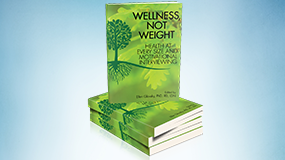As a student I was taught that ambivalence in my clients is bad, and my job was to convince them that they should want to change, for their own good. In this model of a clinician/client relationship, the clinician is responsible for whether or not the patient changes their behavior. From an MI point of view, that’s exactly backwards. The clinician’s responsibility is to help the client explore the pros and cons of change (their ambivalence) and to resolve that ambivalence with a decision about change or no change.
We know that most people are ambivalent when faced with change, even if the proposed change would be a good idea, or something they wish they could do. When you are new to the MI concepts and techniques, it may seem almost like malpractice to not advise the client exactly what to do and how to do it. Often when we tell people what to do they become more resistant to change.
Ambivalence means “you feel two ways about this”. It could sound like:
- I’d like to get more exercise, but I just don’t have time for that.
- I know I’d probably worry less if I checked my blood sugar, but I just hate doing it.
- I know my blood pressure medicine is important, but it makes me pee all day long and it’s inconvenient.
- My dietitian convinced me that more veggies in my diet would be good, but I don’t know where to buy good ones or how to prepare them.
- My wife complains that I smell like an ashtray and she’s right, I should quit. The thing is I love to smoke and the thought of giving that up is awful.
In each of these statements there is a “part” of the person that is in favor of change (change talk) and a “part” that is in favor of the status quo (sustain talk). Using MI we listen carefully for change talk and work to reinforce those ideas in the direction of positive change. Offering a reflection is a great way to respond when you hear change talk. You might even offer a “double-sided reflection”, which could sound like this:
- On one hand exercise seems like a good idea, but you’re not sure where it would fit into your life.
- Blood sugar checks might keep you from worrying, but you really hate it.
- You get that your BP meds are important, but the extra urinating gets in the way of your daily activities. c
- On one hand you agree that more veggies would be good for you, but you’re not sure about buying and preparing them.
- You’re becoming convinced that quitting smoking is a good idea, but it’s hard for you to picture life without it.
Double-sided reflections can help to move the conversation forward in the direction of positive change. They can help in the resolution of ambivalence.



